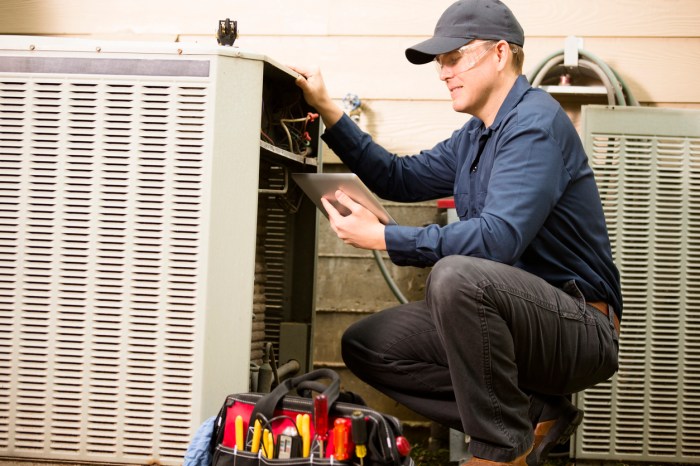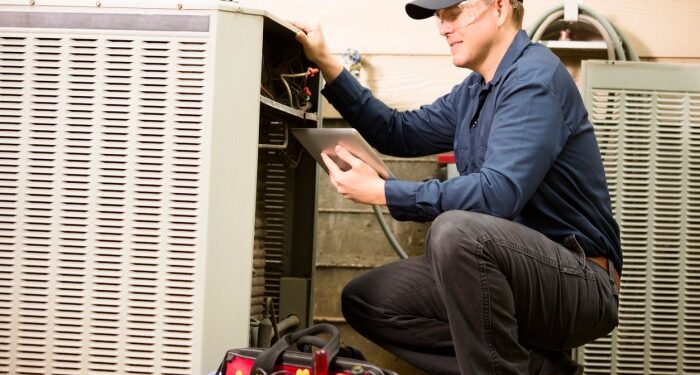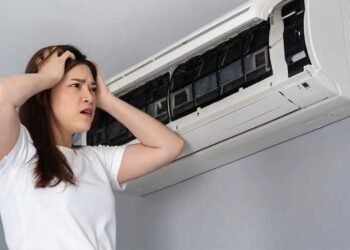Exploring the importance of regular AC tune-ups, this article dives into the frequency, signs, and DIY maintenance tips for your system. Let's uncover the key aspects of keeping your AC running smoothly and efficiently.
Delving into the details of AC tune-ups, we'll cover everything you need to know about scheduling, maintenance, and potential warning signs to look out for. Stay tuned for valuable insights on optimizing your AC system.
Importance of AC Tune Up
Regular AC tune-ups are essential for maintaining the efficiency and longevity of your system. By scheduling routine maintenance, you can ensure that your air conditioner is running at its best, providing you with optimal cooling comfort when you need it most.
Benefits of Regular AC Tune-Ups
- Improved Air Quality: Regular AC tune-ups involve cleaning or replacing filters, which helps to reduce dust, allergens, and other pollutants in the air, leading to better indoor air quality.
- Lower Energy Bills: A well-maintained air conditioner operates more efficiently, using less energy to cool your home. This can result in lower monthly energy bills and savings in the long run.
- Prevent Costly Repairs: Neglecting AC maintenance can lead to minor issues escalating into major problems over time. By catching and addressing potential issues early through regular tune-ups, you can prevent costly repairs down the line.
Frequency of AC Tune Up

Regular AC tune-ups are crucial for maintaining the efficiency and longevity of your cooling system. Here are some guidelines on how often you should schedule AC tune-ups:
Manufacturer Recommendations
Manufacturers typically recommend scheduling an AC tune-up at least once a year. This annual maintenance helps prevent potential issues, improves energy efficiency, and extends the lifespan of your unit.
Factors Influencing Frequency
- Usage Patterns: If you use your AC system frequently or year-round, you may need more frequent tune-ups to keep it running smoothly.
- Climate: Those living in hotter climates may require more frequent tune-ups due to the increased workload on the AC system.
Older vs. Newer Units
Older AC units may need more frequent tune-ups compared to newer ones. Aging systems are more prone to wear and tear, making regular maintenance essential to prevent breakdowns and costly repairs. Newer units, on the other hand, may be able to go longer between tune-ups, but it's still recommended to stick to the manufacturer's guidelines for optimal performance.
Signs Your AC Needs a Tune Up
When it comes to the performance of your AC system, paying attention to certain signs can help you determine when it's time for a tune-up
These issues can indicate problems with the fan or motor, which can impact the overall efficiency of your air conditioning.Irregular Cooling or Frequent Cycling On and Off:Another common indicator that your AC needs a tune-up is when you experience inconsistent cooling throughout your home or notice that the system is constantly cycling on and off.
This could be due to issues with the thermostat, refrigerant levels, or other components that require adjustment or maintenance.Importance of Being Proactive:Recognizing these early warning signs and scheduling a tune-up can help prevent major breakdowns or costly repairs in the future.
Regular maintenance not only ensures that your AC system operates efficiently but also extends its lifespan, saving you money in the long run.
DIY AC Maintenance Tips
Regular maintenance is key to ensuring your AC system runs efficiently and effectively. Here are some simple DIY maintenance tasks you can perform to keep your AC in top condition.
Cleaning or Replacing Air Filters Regularly
One of the most important maintenance tasks for your AC system is cleaning or replacing the air filters regularly. Clogged or dirty filters can restrict airflow, reducing the efficiency of your system and causing it to work harder than necessary.
By cleaning or replacing the filters every 1-3 months, you can improve the overall efficiency of your AC and ensure clean air circulation throughout your home.
Checking and Clearing Debris Around the Outdoor Unit
Another crucial maintenance task is to check and clear any debris around the outdoor unit of your AC system. Leaves, dirt, and other debris can accumulate around the unit, obstructing airflow and causing strain on the system. By regularly inspecting and clearing any debris, you can ensure proper airflow and prevent potential damage to your AC unit.
Last Word
In conclusion, maintaining your AC system through regular tune-ups is essential for optimal performance and longevity. By staying proactive and following the guidelines provided, you can ensure a cool and comfortable environment in your home. Take charge of your AC's maintenance schedule today.
FAQ Insights
How often should I schedule AC tune-ups?
It is recommended to schedule AC tune-ups at least once a year to maintain efficiency and prevent major issues. Factors like usage patterns and climate can influence the frequency.
What are the signs that my AC needs a tune-up?
Common signs include strange noises, reduced airflow, irregular cooling, or frequent cycling on and off. Recognizing these indicators early can help prevent costly repairs.
Can I perform DIY maintenance on my AC system?
Yes, homeowners can perform simple tasks like cleaning or replacing air filters regularly to improve efficiency. It's also important to check and clear debris around the outdoor unit for proper airflow.







![How Much Does Air Conditioning Repair Cost? | Cost Guide [2025]](https://airconditioner.radarbanten.co.id/wp-content/uploads/2025/11/1747643820-120x86.jpg)






